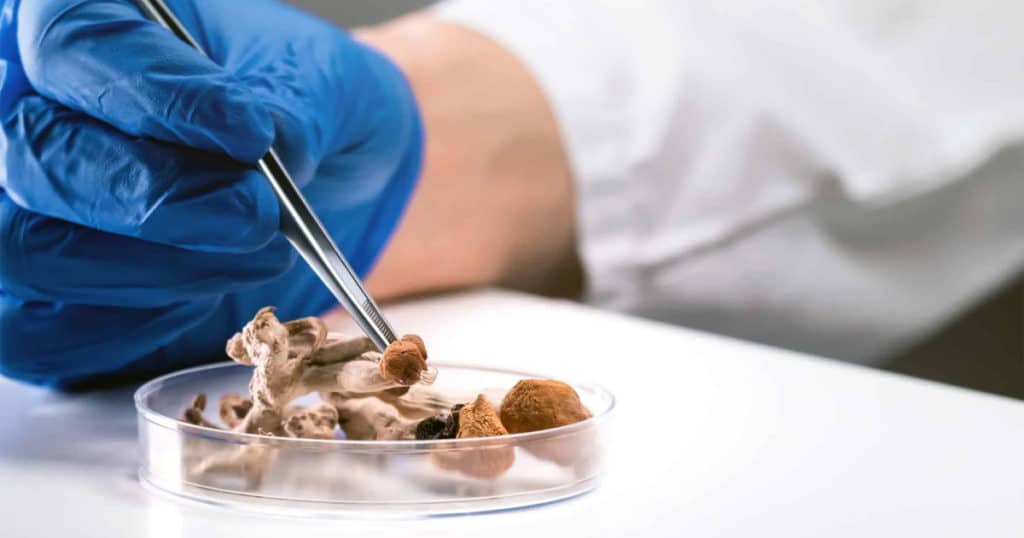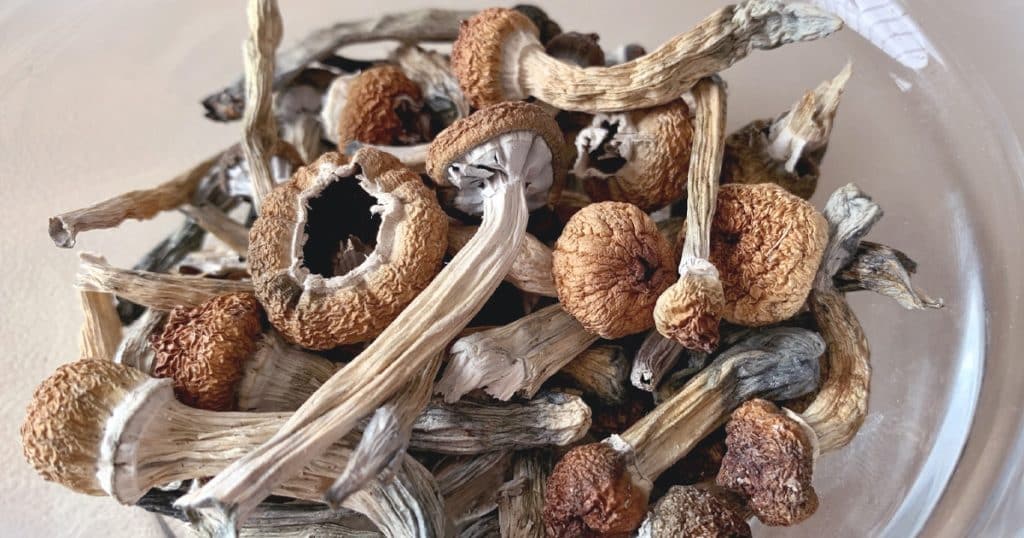The U.S. Department of Veterans Affairs (VA) has continued to research the effect of psychedelics on veterans’ mental health conditions; however, while these research efforts may speak of future promise, it’s imperative for more studies to be conducted to address the gaps in preliminary research.
A recent study conducted by the department revealed that psychedelics like psilocybin and MDMA could be beneficial treatments in treating depression and post-traumatic stress disorder (PTSD). The study forms one of 38 key studies which back the therapeutic potential of psychedelics. This was according to a report published by the VA’s Evidence Synthesis Program (ESP).
MDMA-assisted psychotherapy for PTSD, according to the report, improves symptoms, leads to short-term remission, and creates a promise for treatment for psilocybin-assisted psychotherapy. According to the report, psilocybin therapy could potentially reduce heavy drinking and lower alcohol consumption in those suffering from alcohol use disorder. While compelling, the report, and the industry at large, still see critical gaps in the preliminary research. This research, and associated doubts, now need to be addressed by future research.
It is within these gaps that the department’s researchers found doubt. Despite promising results, researchers are now doubting the idea that psychedelic ibogaine can actually effectively treat opioid-related withdrawal symptoms. They’re also questioning whether or not treatment effects vary according to individual characteristics and disease severity. Researchers are also questioning whether or not treatment benefits are durable over long periods of time.
Further critical gaps within the preliminary research which need to be addressed include the feasibility of implementing intensive psychotherapy protocols in real-world settings, as well as determining whether or not psychedelic treatments could fit into the present standard of care and usual care pathways.
Limitations Of Existing Therapies Require Breakthrough Therapies
At present, the Food and Drug Administration (FDA) has designated psilocybin and MDMA as “breakthrough therapies” and has supported the VA’s ESP findings. Now, following an extensive study in therapeutic interventions involving psychedelics and psychedelic-assisted psychotherapy, these compounds are now seen as novel treatments for adults suffering from mental health and substance use disorders.
“[This is] based on the supposition that intentional use of psychedelics over a limited period can disrupt problematic thought patterns, facilitate psychotherapy, and potentially lead to behavior change. New treatment options are needed given the limitations of existing therapies,” online news articles report.
Psychedelics, while still holding strong on their promise to be an optimal treatment, are still in the early phase of development, and unfortunately, many gaps in evidence still do exist. This means that while promising, confidence in research findings remains low. The evidence on MDMA-assisted psychotherapy has several important research questions that need answering.

Recommendations For Future Research
Recommendations for future research pertain to the inclusion of veteran populations who suffer from combat-related trauma, the inclusion of more diverse populations to further gain clarity on treatment variability, the evaluation of implications of discontinuing mental health medications prior to undergoing psychedelic treatments, as well as the use of a low-dose placebo instead of 0 mg placebo to improve the reporting of blinding effectiveness.
The aforementioned recommendations come at a poignant time when local, state and federal psychedelics policy developments on psychedelics are underway, with efforts ongoing to legalize psychedelics. Along with this, congressional lawmakers are focused on a must-pass bill which will see the examination of plant-based therapies for service members. Government is also closely monitoring research into the therapeutic potential of psychedelics while the Drug Enforcement Agency is releasing its 2023 production quotas for drugs to be used in research.
The National Institute of Mental Health (NIMH) also released a notice of information providing researchers with sufficient guidance on the types of studies it would fund for the development of psychedelic drugs. At the same time, the VA is revising a policy on medical cannabis use by veterans.
All this is to show that the promise of treatment for veterans can be possible if critical gaps in research are resolved and further studies are conducted.

Enjoyed that first hit? Come chill with us every week at the Friday Sesh for a freshly packed bowl of the week’s best cannabis news!















